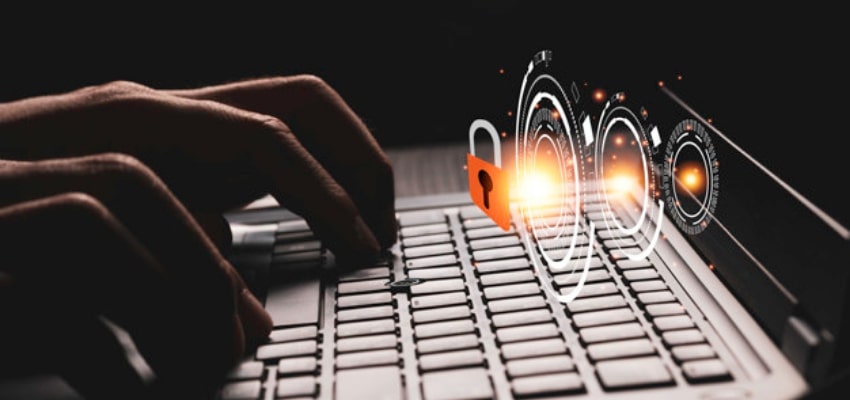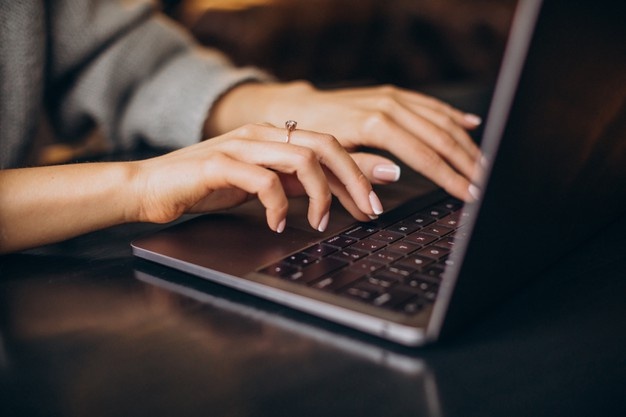Data breaches have become one of the biggest concerns of this digital age, with a laptop being stolen every 53 seconds.
The problem lies in the fact that stolen laptops result in data breaches that cost businesses an average of $47,000 from a single laptop loss. Take healthcare, for instance, about 45% of information breaches happen from stolen laptops.
This means that you need to protect yourself whether you have a business or personal laptop. Not just from theft, but from data breaches even if the laptop is stolen.
Here in this article we will discuss essential laptop security features and practices for work and entertainment.
Best Laptop Security Features
1. Install Anti-Malware / Antivirus Software
One of the most common laptop security risks these days comes from software installed on your computer.
Whether it’s a Trojan downloaded to your laptop without your knowledge or an old version of Adobe Flash Player that has a bug that hackers can use to gain remote access to your machine, the risks are just too high not to have some kind of protection.
The first type of software you can install is an anti-malware or an antivirus package.
These software run in the background, protect your laptop from viruses, spyware, adware and other types of malware that could potentially harm your computer. They also include a firewall component that stops hackers from getting into your system across the internet.
If you’re on Windows 11, then it also comes with Microsoft’s built-in Windows Defender, to take care of most pests for you. Just make sure you keep the anti virus software up to date.
Similar solutions are available for Macs, but they tend to offer more advanced features, including the ability to detect ransomware and scan for vulnerabilities in your system.
2. Set Very Strong Passwords

We have all heard this before, but it’s still one of the most critical laptop security features and practices we can follow.
You should never use a simple password such as “password” or “1234567890”. Instead, you should create a long password that is not easy to guess and has capital letters, numbers, and special characters such as exclamation marks.
If you think this will be too difficult for you to remember every time, use a password manager, and it’ll make it a lot easier to manage all your passwords.
A password manager stores all your passwords in an encrypted file and then provides you with a master password to access them. This is an excellent solution if you have trouble coming up with different passwords for each site or service that you use.
The password manager can also create strong passwords for you that are difficult to crack. Given that the password manager remembers all your passwords, you only need to remember one master password. It’s much easier than trying to remember dozens of different ones.
3. Enable Two-Factor Authentication
Two-factor authentication (2FA) is an extra layer of laptop security. It requires something you know (your password) and something you have (such as a code generated by an app on your phone) to log in to a site or service.
It’s becoming more and more common, with websites like Google, Facebook, and Twitter all offering it as an option.
If you’re not using 2FA already, we recommend enabling it for your important accounts. It’s one of the best ways to protect your laptop from hackers if they manage to get your password.
Even the best laptops for work or play are vulnerable, so don’t overlook this aspect.
4. Install a Firewall

A firewall is a piece of software or hardware that sits between your computer and the internet and helps protect your system from unauthorized access. It does this by blocking incoming and outgoing traffic that doesn’t meet specific rules set by you, the user.
Many laptops will come with a built-in firewall that you can enable in the system’s software. However, they tend to be quite basic and won’t protect you against some of the more modern threats such as ransomware.
There are many different firewalls available. For instance, Windows 11 comes with a built-in firewall called Windows Defender Firewall.
It’s quite effective and capable of protecting your system, but you can always find something better. Mac users can also install a firewall application that gives them more granular control.
5. Use a Lock Slot to Secure Your Laptop
Laptops with lock slots allow you to use a physical wire or lock to prevent them from being stolen.
While some laptops have security kits that include a safety loop and cable, others come with only the slot. You’ll need to attach your own lock or wire as long as it’s certified by the manufacturer.
Using a lock slot may not be as effective when compared to other laptop security features. However, it still provides you with an extra layer of protection and peace of mind at all times.
You can also fix a security cable lock on your desk at work to prevent people from using your device without authorization. It prevents unauthorized access to your gadgets when you are away.
For example, when having lunch in the cafeteria or attending meetings in different parts of the office building.
Not only that, but a cable lock can also detect theft as it makes the laptop cumbersome and difficult to steal. All you need is a cable that is long enough to loop around a sturdy, fixed object such as a desk or table leg.
The best part is that these security cables are not expensive at all.
6. Install an Anti-Theft Software
One of the best ways to protect your laptop from being stolen is by installing anti-theft software.
This software tracks your laptop’s location when it’s lost or stolen and allows you to remotely access it to delete all data or even shut it down. If you possess one of the best laptops, then you’re more vulnerable and need this kind of laptop security feature.
7. Password Protect Your BIOS

Your laptop’s BIOS or Basic Input/Output System is the first software that starts up when you turn on your device.
This software contains all the information about your hardware and how it’s configured. It also includes your boot order, which is the sequence of devices your computer will look for to start the operating system.
If someone gains access to your BIOS, they can change your settings, install malware or even steal your data. This is why you should always password protect your BIOS and keep the password in a safe place.
8. Back up Your Data Regularly
Like all electronic devices, laptops can fail, and you can lose data due to hardware damage or software errors. This is where having regular backups comes in handy!
A good option for most people is to automatically back up your laptop to cloud storage such as Google Drive or Dropbox.
This way, you never have to worry about losing any documents or photos that matter to you. Of course, you must ensure that nothing containing sensitive information is on the cloud without encryption.
9. Avoid Using Public Wi-Fi Networks
Public Wi-Fi networks are easy to find in coffee shops, airports, hotels, restaurants, and even street corners. However, these networks are usually unsecured (meaning nothing is protecting you from other people on the network).
If other users on the network are infected with malware, their devices could be scanning the network for other targets.
Moreover, never leave your laptop unattended in public. As tempting as it might be to leave it for a few minutes while you go get coffee, it’s not a good idea as there’s a high chance that it could be stolen.
Opportunistic thieves often target laptops in public spaces as they’re easy prey, so make sure you keep an eye on yours at all times.
10. Use a VPN for Additional Security

A VPN, or Virtual Private Network, is a great way to add an extra layer of security to your laptop when you’re using public Wi-Fi networks or connecting to the internet from other places. It creates a secure tunnel between your device and the VPN server.
This prevents anyone (including your ISP) from being able to see what you’re doing online. There are a number of different VPN services available, so do some research and find one that’s right for you.
11. Keep Your Laptop Up-to-Date
One of the most important laptop security features and practices you should consider is to keep your operating system and other applications up-to-date. Most companies will release updates and patches for their software on a regular basis.
It’s critical that you install them as soon as possible to avoid any security risks. If this is not possible, then uninstalling the older versions of the application or even disabling them if they are not needed can also limit security threats.
12. Use Trusted Applications
One of the most essential laptop security features and practices is using trusted applications that you know are secure. If someone sends you an email with a link or file attachment, do not click on it unless you trust the sender completely.
Also, refrain from downloading software from any unofficial websites as they may contain malware. Malware is super dangerous and may cause harm to your device or steal information about you they can use for identity theft purposes.
Conclusion:
These are just a few of the essential laptop security features and practices that you should be using to keep yourself and your data safe. By following these tips, you can rest assured that your laptop is well-protected against any malicious actors out there.
Stay safe and check out our blog for more informative guides!
